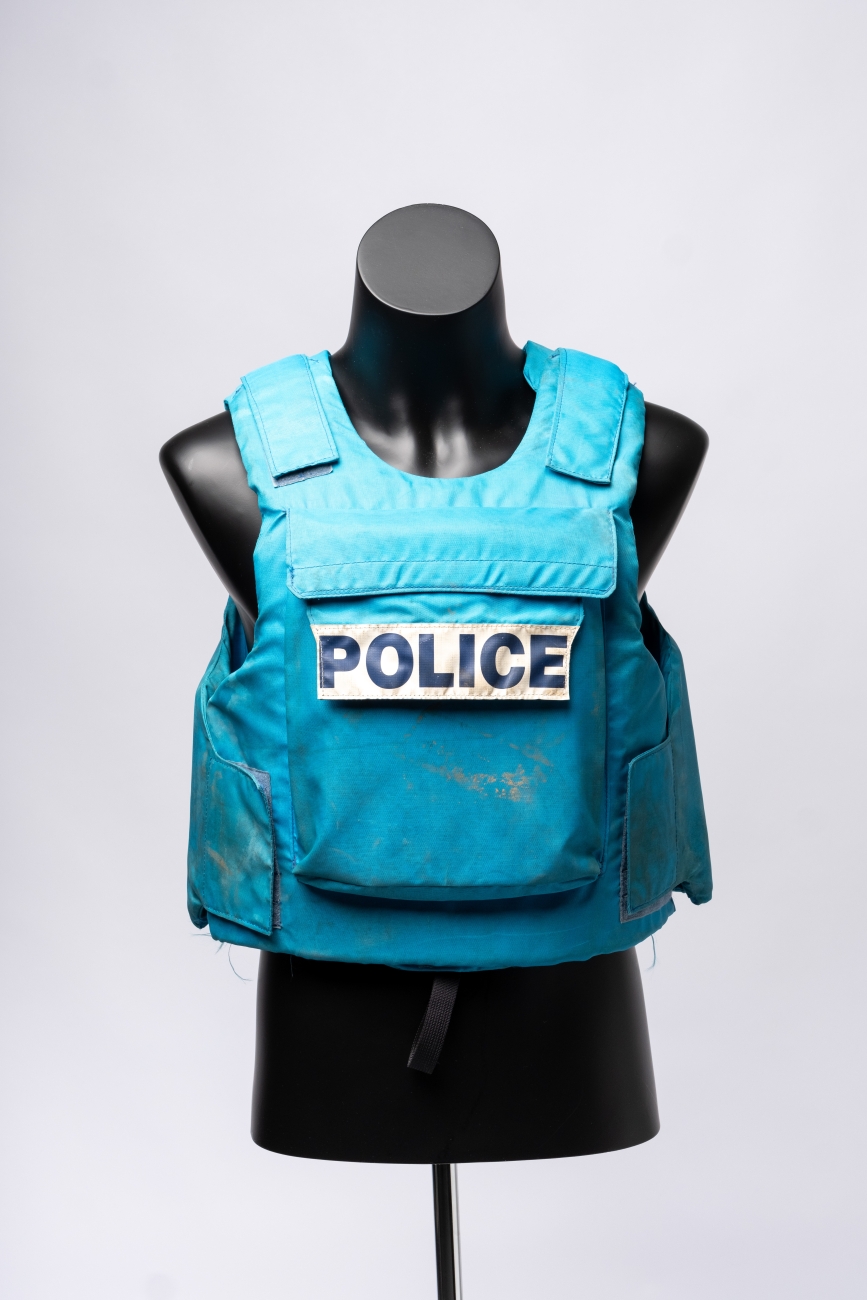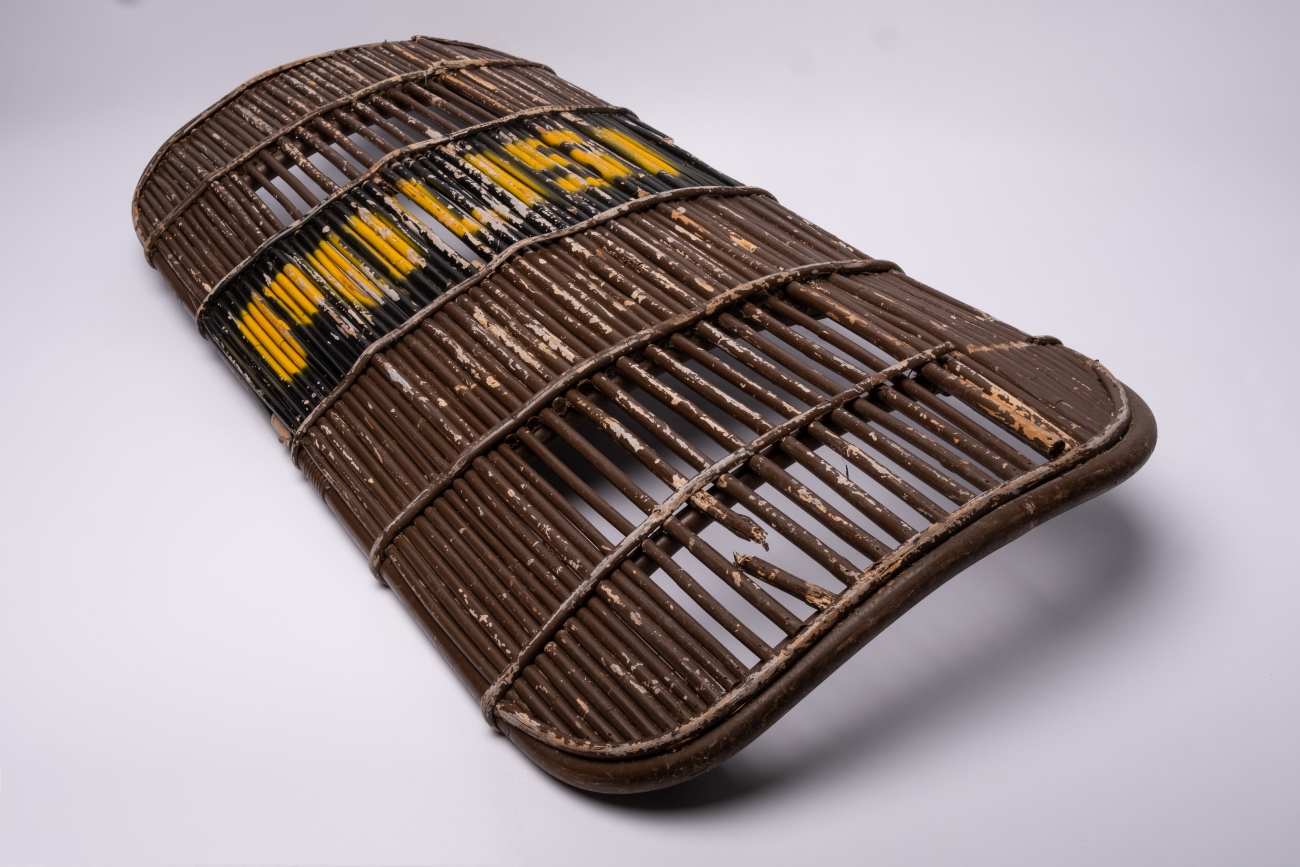Our collective efforts have seen the emergence of new nations, the advancement of liberal democracy, the suppression of politically motivated violence and the active encouragement of global peace in the face of uncertainty.
Reece Kershaw APM
AFP Commissioner
(speaking at the Australian Peacekeeping Memorial in Canberra on the 75th Anniversary of Australian Peacekeeping)
Police peacekeeping beginnings in Cyprus
In 1964, Cyprus faced conflict between Greek and Turkish Cypriots. The Government of Cyprus called for international help.
The United Nations (UN) set up the UN Peacekeeping Force in Cyprus (UNFICYP). It was the first time the UN had involved civilian police in a peacekeeping mission.
For the next 53 years, over 1,600 police officers from all Australian states and territories served with UNFICYP. Fifteen police officers served at one time, rotating each year. All Australian state and territory police forces contributed volunteer personnel to the UN force. They were sworn in as special Commonwealth Police officers. Commonwealth and state police peacekeepers served until 1976. After that, Commonwealth Police staffed the Cyprus contingent.
The policing component:
- kept peace and stability in the buffer zone between northern (Turkish) and southern (Greek) Cyprus
- gave humanitarian help
- helped law enforcement authorities from northern and southern Cyprus to communicate.
A risky endeavour
Peacekeeping work could be dangerous, lonely and terrifying. Peacekeepers risked being caught in the crossfire and bombing attacks.
They witnessed civilians being executed and injured. In one month in 1974, about 10,000 Greek and Turkish Cypriots died in the conflict.
Veteran Mick Richards described the conditions:
At Ayios Theodoros we had no electricity, we had no showers, no wireless or communication with the outside world whatsoever. We had a Tilly primus lamp so we could play cards. Our rations came packed in a box – that our cook did marvellous things with – but it was a very lonely existence. In Polis the Turkish jets would come around at roof level at any given time. You’d have no warning whatsoever, no air raid shelters – it was terrifying, the people were terrified. The planes would strafe. It was petrifying.
Then-Sergeant 1st class Mick Richards (1st contingent)
Cyprus Foundations of Peace 1964–2014
The human face of peacekeeping
Australian police peacekeepers in Cyprus served with empathy and professionalism. Veteran Rod Walker risked his life to help a grieving family:
Federal Agent Rod Walker received a call at 11 am to return a three-year-old girl’s body from the southern zone to her parents in the north. Arriving at the hospital, Rod realised that he had actually met the girl during escort trips to the hospital. About 4,000 people were waiting with the parents at the Turkish checkpoint on the buffer zone for the return of the girl’s body. Knowing the Greek military would not let the undertaker within the buffer zone, Rod decided the only way to maintain the dignity of the occasion was to carry the body to the parents. The buffer was heavily mined during the conflict of 1974, making the area potentially lethal.
'Farewell to Cyprus'
Platypus magazine, 2017
AFP Superintendent Jason Byrnes served with the 62nd Australian Civilian Police Contingent to UNFICYP from 1999 to 2000. His work included patrols in the ‘Green Zone’ border. The border separated the Greek Cypriot south and the Turkish Cypriot north.
Superintendent Byrnes described a challenging negotiation:
One of my more challenging tasks was negotiating with a goat herder to get him and his herd to leave the buffer zone. It was drought conditions and the buffer zone had some of the best grass and food stock for his goats. It also had minefields and military forces on both sides that were shaping up to shoot the animals and probably at each other. It took a lengthy period of time to convince him to leave with his goats, but we were able to do it with everyone and every goat, being safe.
'AFP marks 75 years of Australian Peacekeeping'
Media release, 14 September 2022
Humanitarian work
Humanitarian patrols play an essential role in peacekeeping work. Peacekeepers do a range of important tasks. These include:
- delivering medical supplies
- transporting people for medical treatment
- escorting people on pilgrimages
- helping families reunite.
Veteran Charlie Gaughran described a family reunion:
A father may not have seen his daughter or family or grandchildren for years and years. They would talk, hug each other and you’d have to say after an hour or two that it was time to go. They never knew if they would see each other again. It was awful. There were also occasions where we would try and bring the communities together. We got permission to bring Turkish and Greek Cypriots to the Ledra Palace for a darts match. Some of these people had been friends for years but hadn’t seen each other. It was a huge success. Events like that could help break down the barriers.
Charlie Gaughran (25th, 31st, 32nd, 38th, 39th and 47th contingents)
Cyprus Foundations of Peace 1964– 2014
The legacy of Australia's peacekeeping mission in Cyprus
AFP peacekeepers have served with distinction in missions throughout the world. The Cyprus mission:
... provided an important foundation for Australia's footprint in international policing. We now have officers stationed in 31 countries as part of our international operations.
Andrew Colvin AO APM
AFP Commissioner 2014–2019
Three members of the Australian Police Contingent of United Nations Civilian Police lost their lives in Cyprus:
- Sergeant Llewllyn Thomas (1943–1969)
- Inspector Mark Hackett (1940–1971)
- Sergeant Ian Ward (1949–1974)
Australian police peacekeepers in United Nations missions
After its formation in 1979, the AFP took the lead on Australian law enforcement overseas. The AFP has provided police for UN operations in:
- Afghanistan
- Bougainville
- Cambodia
- Cyprus
- East Timor
- Haiti
- Jordan
- Mozambique
- Namibia
- Somalia
- South Sudan
- Sudan
- Timor-Leste.
Our support has included:
- training
- security
- help with re-establishing peace after breakdowns in civil order
- humanitarian aid.
Peacekeeping in the Pacific
AFP peacekeepers have built strong partnerships in the Pacific region. They've served in significant operations in Solomon Islands, Timor-Leste and Vanuatu. Operations have included:
- Regional Assistance Mission to Solomon Islands (2003–2017)
- Timor-Leste Police Development Program (2004–current)
- UN Integrated Mission in Timor-Leste (2006–2012).
Solomon Islands
In 2003, the Australian Government organised 11 Pacific nations to help the Solomon Islands Government restore law and order. Around 235 AFP and Australian Protective Service personnel arrived in Solomon Islands in July that year.
In 2005, then-Assistant Commissioner Paul Jevtovic, International Deployment Group reflected on the combined role of the AFP and Defence contingents:
This is a whole new world for all of us. We have police going and doing work in some difficult environments offshore. Environments where some of the criminals have firepower that far exceeds some of the things that police are accustomed to in normal community policing. So it was extremely important that we had a Defence presence – it still is extremely important. Working together gives us all confidence in our ability to execute our duties on the ground. That’s something you can’t measure.
Paul Jevtovic APM OAM
Assistant Commissioner AFP (1982-2009)
In 2004, AFP protective service officer Adam Dunning was killed while on duty in Solomon Islands.
Timor-Leste
The AFP participated in UN operations in Timor-Leste (then known as East Timor) from 1999. It has provided members to every mission in Timor-Leste since. AFP peacekeepers have strengthened the Policia Nacional de Timor-Leste. They've helped build leadership and policing skills.
In February 2012, Sergeant Brett Kinloch of the AFP died while serving with the United Nations Integrated Mission in Timor-Leste (UNMIT).
12 February to 12 May 2000. He purchased it for 5,000 Rupiah ($2 AUD) from a local in Baucau. AFPM2109.
Speaking at a 75th anniversary of Australian peacekeeping event in 2022, Commissioner Reece Kershaw said of his time in Timor-Leste:
I still recall the difficulties and challenges we faced there – the air of uncertainty, the threat of mounting violence, being away from home and family for an extended period of time. These are all challenges faced by our peacekeepers every day. But much more clearly than that, I remember the camaraderie. The sense of shared purpose between us as peacekeepers, meant we worked as one to build trust with the local community.
AFP peacekeepers have helped other nations build capacity through the Pacific Police Development Program in:
- Papua New Guinea
- Samoa
- Nauru
- Vanuatu
- Tonga.
International Deployment Group (IDG)
The International Deployment Group (IDG) was set up in February 2004. It provides logistical support for missions and trains police peacekeepers. Training focuses on:
- cultural sensitivities
- remote first aid
- capacity development
- team-building
- UN police training modules.
The AFP is the first police force in the world to receive UN recognition for its pre-deployment training program.
The AFP Policing Partnership Program
The AFP continues to partner with the Royal Solomon Islands Police Force (RSIPF) to keep their communities safe and secure. The partnership includes training and equipping the RSIPF to be an efficient, modern police force.
We have been with each other through thick and thin. As Prime Minister Sogavare has said, our partnership is based on our shared duty to ensure that our region remains peaceful, prosperous and stable.
Dr Lachlan Strahan
Australian High Commissioner to Solomon Islands
(in an APF media release on the November 2022 handover of A$1.3 million in specialist vehicles and weapons to strengthen RSIPF operational capability in the lead up to the Pacific Games in 2023)
Training police officers for UN peacekeeping operations
Australia supports the UN in police training for peacekeeping operations in the Asia–Pacific region. In 2023, the AFP hosted 21 police officers for pre-deployment training for UN peacekeeping missions. The officers were from:
- Canada
- Fiji
- Kiribati
- Nauru
- Papua New Guinea
- Samoa
- Solomon Islands
- Timor-Leste
- Vanuatu
- Vietnam.
Commemorating police peacekeeping
The AFP commemorates police peacekeepers on 14 September, which is National Peacekeepers Day.
The AFP Memorial is on Anzac Parade in Canberra. Nearby, the Australian Peacekeeping Memorial commemorates the service of 80,000 Australian military, police and civilian peacekeepers.




